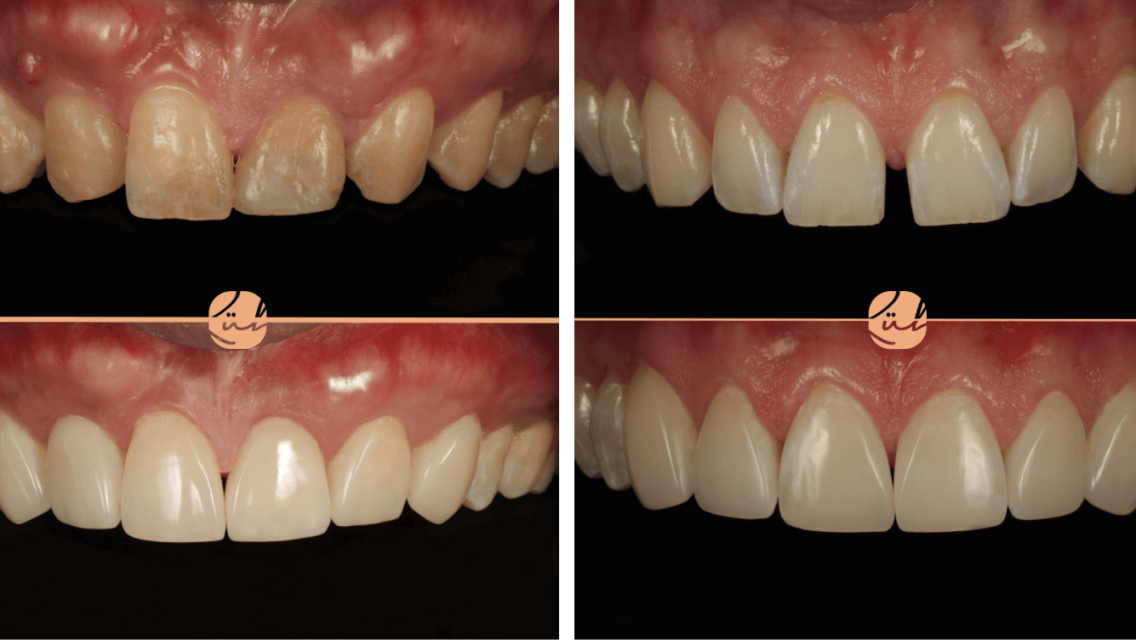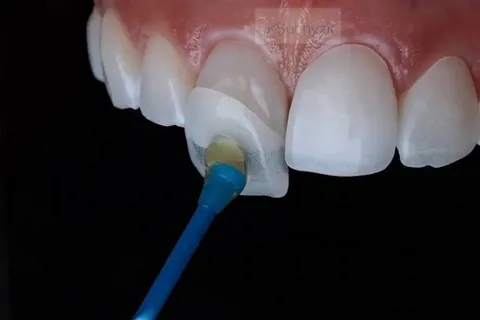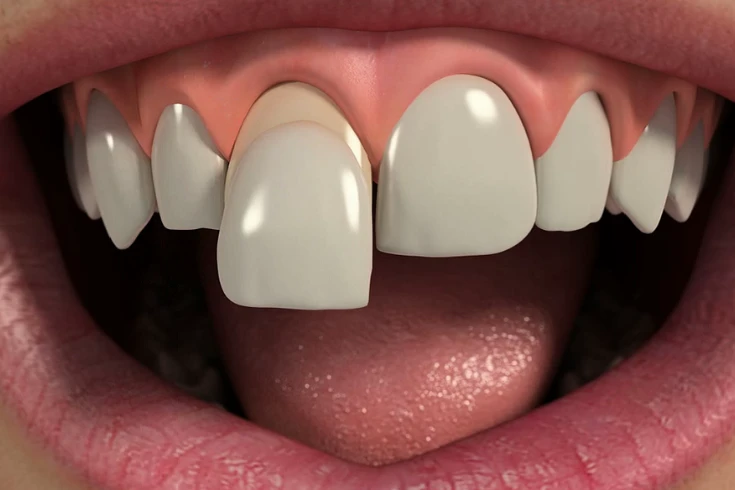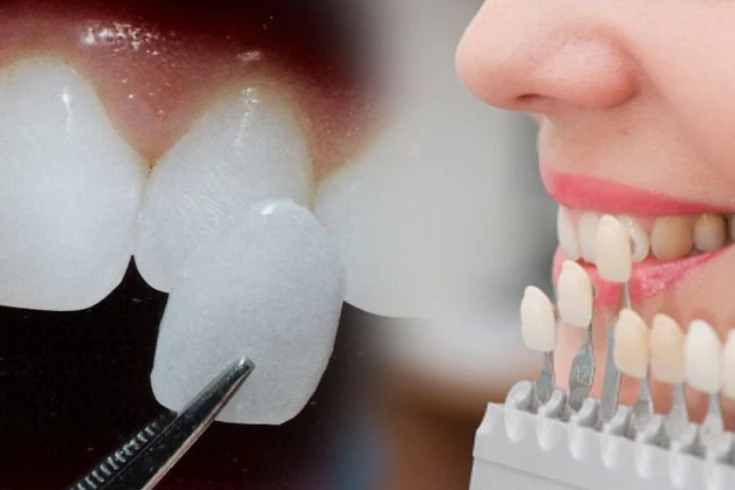When it comes to enhancing your smile, modern dentistry offers several effective options. Among the most popular are teeth bonding and veneers. Both can significantly improve the appearance of your teeth, but they serve different purposes and come with unique pros and cons. In this blog, we will explore the differences between teeth bonding vs veneers, including their costs, procedures, and suitability for various dental issues.
Teeth Bonding and Veneers
Teeth bonding is a cosmetic dental procedure that involves applying a tooth-colored resin material to the teeth. This material is then hardened with a special light, bonding it to the tooth to improve its appearance. Teeth bonding is commonly used to:
- Repair chipped or cracked teeth
- Close gaps between teeth
- Improve the appearance of discoloured teeth
- Change the shape of teeth
- Protect exposed roots of teeth due to gum recession
Pros of Teeth Bonding
- Cost-Effective: Teeth bonding is generally more affordable than veneers.
- Quick Procedure: It usually takes about 30 to 60 minutes per tooth and can be done in a single visit.
- Less Invasive: Minimal removal of tooth enamel is required compared to veneers.
Cons of Teeth Bonding
- Less Durable: The bonding material is not as strong as veneers and may chip or stain over time.
- Maintenance: Bonded teeth may require touch-ups and replacements more frequently than veneers.
Veneers are thin, custom-made shells designed to cover the front surface of the teeth. They are typically made of porcelain or resin composite materials. Veneers are used to:
- Improve the color, shape, and size of teeth
- Repair broken or worn teeth
- Create a uniform appearance for teeth that are misaligned or have gaps
Pros of Veneers
- Durable and Long-Lasting: Veneers are more resistant to staining and can last up to 15 years with proper care.
- Natural Appearance: Porcelain veneers, in particular, mimic the light-reflecting properties of natural teeth.
- Minimal Maintenance: They require less maintenance and fewer replacements compared to bonding.
Cons of Veneers
- Costly: Veneers are generally more expensive than teeth bonding.
- Irreversible: The process involves removing a small amount of enamel from the tooth surface, making it a permanent alteration.
- Multiple Visits: Getting veneers typically requires multiple dental visits.
Bonding Front Teeth Crowns vs Veneers
Another option to consider for improving the appearance of front teeth is dental crowns. While crowns and veneers serve similar aesthetic purposes, they differ in their application and benefits.
Crowns cover the entire tooth and are often used for restorative purposes, such as strengthening a tooth that has been significantly damaged or decayed.
- Durability: Crowns are extremely durable and can withstand significant bite forces, making them ideal for teeth that need more structural support.
- Aesthetic: Modern crowns can be made to look very natural, blending seamlessly with the rest of your teeth.
Veneers, on the other hand, are less invasive and are primarily used for cosmetic enhancements. They are best suited for teeth that are in relatively good health but need aesthetic improvements.
Difference of Cost Teeth Bonding vs Veneers
Cost is a significant factor when choosing between Cost teeth bonding and veneers. Here’s a general comparison of cost teeth bonding vs veneers.
- Teeth Bonding: The cost ranges from $100 to $400 per tooth. The exact price can vary based on the complexity of the case and the dentist’s expertise.
- Veneers: The cost of veneers ranges from $800 to $2,500 per tooth. Porcelain veneers tend to be on the higher end of the price spectrum due to their superior aesthetics and durability.
Making the Right Choice – Bonding Teeth vs Veneers
The decision between bonding teeth vs veneers depends on several factors, including the extent of the dental issue, budget, and personal preferences. Here are some considerations to help you decide:
- Minor Repairs: If you have minor chips, cracks, or discolouration, teeth bonding is an affordable and quick solution.
- Major Enhancements: For significant aesthetic improvements or to correct misalignment and gaps, veneers offer a more durable and natural-looking result.
- Durability Needs: If you need a long-lasting solution and are willing to invest more, veneers are the better option.
- Budget Constraints: If cost is a primary concern, teeth bonding provides an effective yet economical alternative.
Conclusion: Bonding Front Teeth Crowns vs Veneers
Both teeth bonding and veneers have their unique advantages and are effective in enhancing your smile. Consulting with a cosmetic dentist can help you understand which option is best suited for your specific needs and achieve the beautiful smile you desire.
Whether you are considering bonding teeth vs veneers, or comparing bonding front teeth crowns vs veneers, it’s essential to weigh the pros and cons carefully. Remember, investing in your smile is an investment in your confidence and overall well-being. Whether you choose teeth bonding or veneers, both options can provide significant improvements and boost your self-esteem.
Exploring the cost of teeth bonding vs veneers will also help you make an informed decision that fits your budget. Ultimately, both treatments aim to give you a brighter, more confident smile, tailored to your individual needs.
Frequently Asked Questions
Which Procedure is More Painful?
Both procedures are typically painless. Local anesthesia might be used for bonding if it’s being used to fill a cavity, but veneers usually require some removal of tooth enamel, which can involve more preparation.
Can Bonding and Veneers be Whitened?
- Bonding: The composite resin does not respond to traditional whitening treatments.
- Veneers: Porcelain veneers are stain-resistant, but the surrounding natural teeth may need whitening over time.
Are There Any Risks or Downsides?
- Bonding: Can chip or stain over time and may need touch-ups.
- Veneers: Require removal of a small amount of tooth enamel, which is irreversible.
Who is a Good Candidate for Each Procedure?
- Bonding: Ideal for minor cosmetic changes, temporary corrections, or small repairs.
- Veneers: Suitable for individuals looking for a significant change in their smile, those with multiple cosmetic issues, or those seeking a long-lasting solution.
How Do I Care for Bonded Teeth and Veneers?
Maintain good oral hygiene practices, avoid biting on hard objects, and visit your dentist regularly for check-ups and cleanings.
How Do I Decide Which Option is Best for Me?
Consult with a dental professional. They will evaluate your oral health, cosmetic goals, and budget to recommend the best treatment option for your needs.





